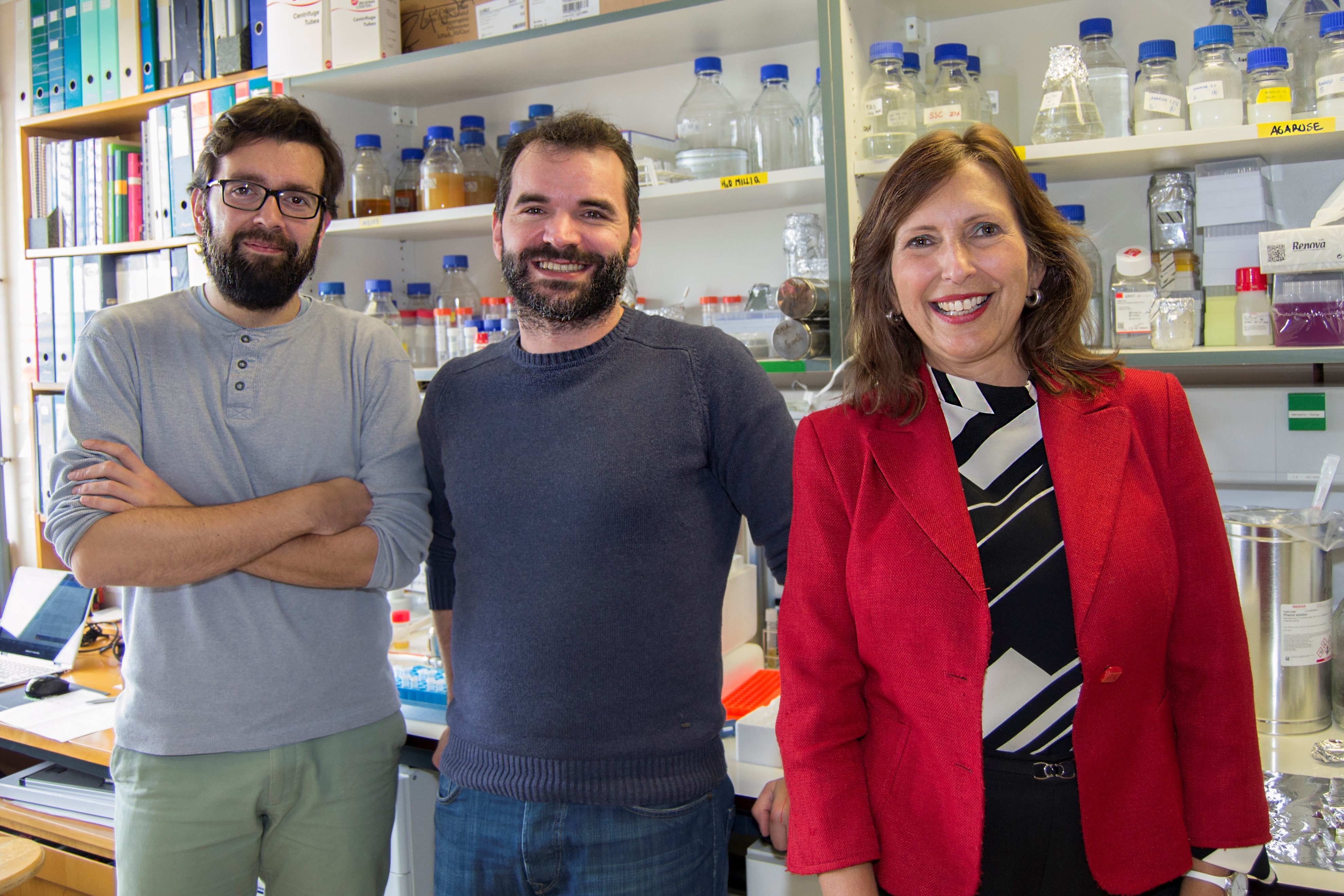On building ribosomes
Oeiras, 18.04.2018
Ribosomes are organelles responsible for protein synthesis in all living organisms. Ribosomes are made of proteins and RNA (Ribosomal RNA, rRNA) and putting the several elements in the right location requires a precise multi-step hierarchically ordered process. In this biogenesis, processing of rRNA precursor (pre-rRNA) is a critical step that guarantees the integrity of the functional ribosome. In humans dysfunctional ribosomes are responsible for severe diseases, known as ribosomopathies. Researchers from Cecília Arraiano Lab, in collaboration with colleagues from the University pf Hamburg, have now identified the key role of RNA-binding protein Hfq in this process. The results were published today in EMBO journal.
The bacterial RNA-binding protein Hfq is present throughout all domains of life, acting as an RNA chaperone facilitating base pairing between small regulatory RNAs (sRNAs) and their mRNA targets to control gene expression. Using in vivo and in vitro approaches, including ribosome profiling, ITQB NOVA researchers have demonstrated a new function for Hfq. It was shown that Hfq is essential for ribosome assembly with direct effects on translation efficiency and fidelity. “We knew that Hfq had a very important role on sRNA-biology, but with the current data we can now say that its ubiquitous role in the regulation of cell metabolism is even greater than we have antecipated”, explained Cecília Arraiano, corresponding author. “We have demonstrated that RNA-binding protein Hfq is also acting as a crucial auxiliary ribosome biogenesis factor, with impact on rRNA processing, ribosome biogenesis and translation fidelity”.

ITQB NOVA researchers Ricardo Santos, José Andrade and Cecília Arraiano
Original Paper
The EMBO Journal (2018) e97631. Doi 10.15252/embj.201797631
The RNA-binding protein Hfq is important for ribosome biogenesis and affects translation fidelity
José M. Andrade1,§, Ricardo F. dos Santos1,§, Irina Chelysheva2, Zoya Ignatova2,* and Cecília M. Arraiano1,*
1Instituto de Tecnologia Química e Biológica António Xavier, Universidade Nova de Lisboa,
2Institute of Biochemistry and Molecular Biology, University of Hamburg
§Joint first authors // *Corresponding authors







